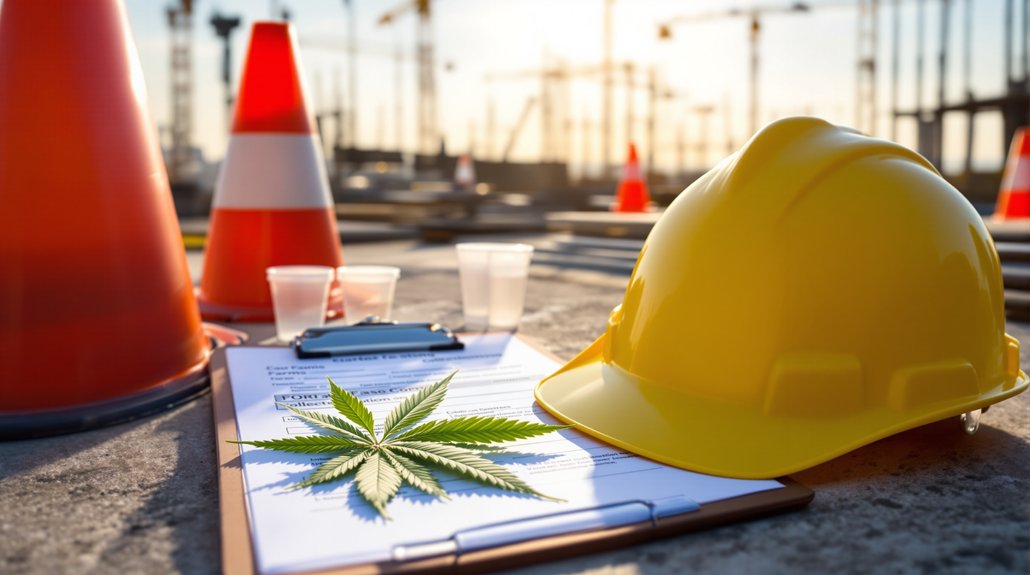California’s construction industry stands apart from other sectors following the implementation of Assembly Bill 2188, which took effect January 1, 2024. While this legislation restricts employer penalties for off-duty marijuana use across most industries, it specifically exempts “building and construction trades” employees from these new protections. This carveout allows construction employers to maintain traditional drug testing policies and continue taking adverse employment actions based on positive marijuana tests.
The exemption permits construction companies to use urine drug testing and discipline workers for non-psychoactive cannabis metabolites, practices now banned in other industries. Government Code §12954 explicitly maintains these testing powers within building and construction trades, creating a legal framework that supports continued screening. However, AB 2188 does not precisely define the scope of this exemption, leaving some ambiguity about which specific roles and companies fall under the construction category.
Safety considerations drive much of the rationale behind maintaining drug testing in construction work. The industry is classified as high-risk and safety-sensitive, with workers regularly handling heavy machinery and hazardous materials. Marijuana’s psychoactive effects can impair motor skills, reflexes, and judgment—capabilities that are critical in construction environments where accidents can have severe consequences.
Construction’s designation as high-risk work justifies continued drug testing due to heavy machinery operations and potential for severe workplace accidents.
Employers rely on drug testing to minimize workplace incidents and reduce liability exposure while complying with industry safety standards and insurance requirements. Construction firms can maintain zero tolerance policies for on-site workers, allowing the continued use of urine tests without legal concerns. The earlier draft of AB 2188 included more specific language covering alteration, building, excavation and other detailed construction activities before being simplified to the broader “building and construction trades” terminology.
Federal regulations add another layer of complexity to construction drug testing policies. Projects funded by federal agencies must adhere to federal standards under the Drug-Free Workplace Act and Department of Transportation regulations, which preempt state law protections. Federal contracts often specify mandatory drug testing for all employees, regardless of state-level exemptions.
Construction roles requiring federal background checks remain subject to these testing requirements, creating ongoing discrepancies between state legalization efforts and federal prohibition.
Current testing technology presents significant limitations that affect the entire discussion. Common workplace tests, including urine, blood, and hair screenings, detect non-psychoactive THC metabolites that reflect past marijuana use rather than current impairment. No widely available employment test can accurately distinguish between recent impairment and prior consumption. Psychoactive THC tests are not yet standard or broadly accessible for workplace screening purposes.
Despite these technological shortcomings, construction employers continue using legacy testing techniques due to their exempt status under California law. The legal framework explicitly permits continued use of non-psychoactive metabolite testing within construction trades, maintaining established protocols even as other industries adapt to new restrictions.
This approach aligns with broader safety-sensitive position protocols under both California and federal law, reflecting ongoing concerns about workplace safety in high-risk construction environments.





